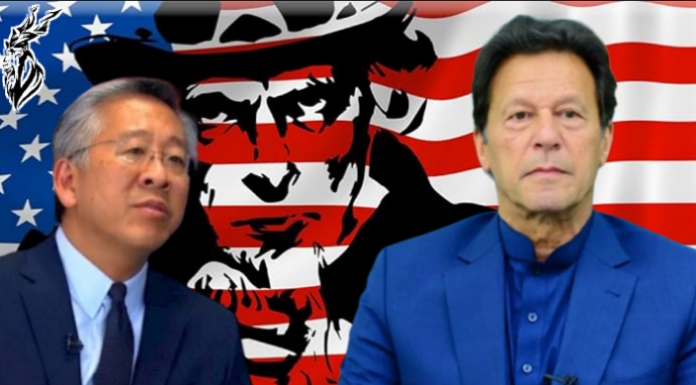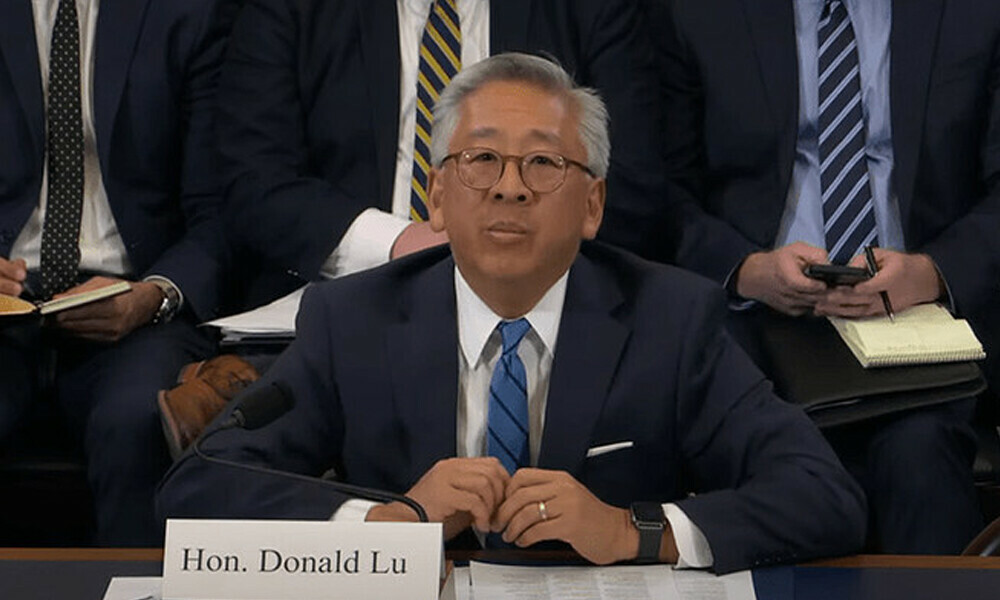Lu’s tenure, became a focal point of accusations
by Imran Khan, who alleged U.S. interference
in his removal from office
Web Desk

Washington: Donald Lu, the U.S. Assistant Secretary of State for South and Central Asian Affairs, concluded his term on January 17, 2025, leaving behind a legacy marked by significant political controversies in Pakistan. His tenure, which began on September 15, 2021, became a focal point of accusations by former Pakistani Prime Minister Imran Khan, who alleged U.S. interference in his removal from office.
Imran Khan’s Allegations Against Donald Lu
The controversy surrounding Lu erupted in March 2022, when Imran Khan, then Prime Minister of Pakistan, accused the U.S. of orchestrating a “foreign conspiracy” to unseat his government. Khan specifically implicated Donald Lu, citing a diplomatic cable reportedly sent by Pakistan’s then-Ambassador to the U.S., Asad Majeed Khan.
Khan alleged that during a meeting, Lu warned Pakistan of potential diplomatic repercussions if Khan remained in power. He later referred to the communication, widely dubbed as the “Cipher,” during a public rally on March 27, 2022, claiming it contained evidence of U.S. involvement in supporting the opposition’s no-confidence motion.
The no-confidence vote led to Khan’s removal in April 2022, paving the way for the current coalition government led by the Pakistan Muslim League-Nawaz (PML-N).

U.S. Denials and Donald Lu’s Response
The U.S. State Department has consistently dismissed Khan’s claims as baseless. Lu himself addressed the allegations during a Congressional hearing in March 2024, labeling the accusations as “a conspiracy theory” and “completely false.”
“I categorically deny any involvement in Pakistan’s internal political affairs. The United States respects Pakistan’s sovereignty,” Lu stated.
Furthermore, Asad Majeed, the diplomat who reportedly authored the cipher, testified before Pakistani authorities, denying the existence of any conspiracy, further undermining Khan’s narrative.
Impact of the Controversy
The allegations made Lu a polarizing figure in Pakistan, with Pakistan Tehreek-e-Insaf (PTI) activists in the U.S. staging protests and demanding his resignation. These accusations also heightened anti-U.S. sentiment within Pakistan, complicating diplomatic relations during Lu’s tenure.
Despite these challenges, analysts believe the controversy surrounding Donald Lu highlighted deeper political and institutional divides within Pakistan rather than substantiating claims of foreign interference.
Legacy and Departure
Donald Lu’s departure coincided with the conclusion of his term, as confirmed by the U.S. State Department, which clarified that his exit was a routine transition. However, in Pakistan, the PTI has framed Lu’s exit as a symbolic victory, further fueling political narratives.
As Assistant Secretary of State, Lu’s portfolio included overseeing U.S. relations with Pakistan, India, Bangladesh, Sri Lanka, and several Central Asian nations. Notably, Lu never visited Pakistan during his tenure, a decision attributed to security concerns and the heightened political sensitivity surrounding his role.

Looking Ahead
Donald Lu’s tenure will likely remain a key chapter in Pakistan’s political history, particularly in relation to the so-called “Cipher Gate.” While the U.S. government has denied the allegations, the controversy continues to influence public discourse in Pakistan, leaving questions about the future of U.S.-Pakistan relations.






















